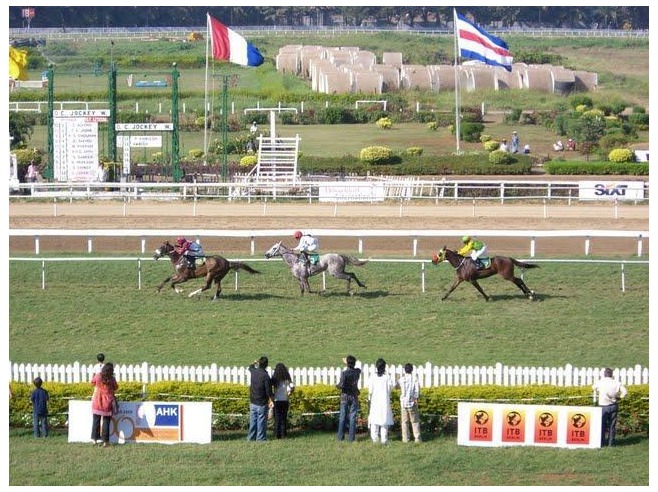Legal & Regulatory
Recent Madras HC decision outlaws rummy for profit, decision based on fallacious interpretation
A recent decision of the division bench of Madras High Court has suprisingly ruled that playing rummy for stakes would be a criminal offence as per the Madras Police Act 1888 which is pari materia with most of the other state gaming Acts.
The Court while giving this decision acknowledged the landmark 1967 State of Andhra Pradesh v. K. Satyanarayana decision which recognised rummy as a game of skill. The Court in this case, Director General of Police and Others v. Mahalakshmi Cultural Association (2012) held that even games of skill played for stakes would amount to gambling and would be a punishable offence.
The court in this instance tried to play the moral police and cited religious scriptures and other treatises in justifying the ban on rummy for stakes. The court also justified its stance to protect players from getting ‘bankrupt’ and losing large sums of money.
However the court completely ignored the wordings of Section 49 of the Madras Police Act which says that penal provisions of gambling shall not apply to games of mere skill. Again the Court also overturned the decision of earlier decision of the single judge of the High Court which correctly interpreted the Madras Police Act to permit rummy for stakes.
This decision of the Madras HC is a clear U-turn from an earlier decision of the Andhra Pradesh High Court D. Krishna Kumar and Anr. v. State of A.P. (2002) which clearly says that the statutes specifically are worded to save games of skill from any criminal liability.
In this judgment the court observed: “In view of Section 15 of the (Andhra Gaming) Act, the provisions of the Act do not apply to game of rummy, which is to be treated as a game of skill only. Therefore, the question whether the management of the club or the club is making profits, and what is the rate of profit that is being made from out of the game of rummy with 13 cards/syndicate may not be of any relevance. Therefore, even if the petitioners, who are running the club that was raided by the police, were making profits by allowing persons to use the premises for playing the game of rummy with 13 cards/ syndicate, they cannot be said to be running a ‘common gaining house’ as defined in Section 3 of the Act, because Section 3 of the Act, in view of Section 15 of the Act, does not apply to a place where Rummy is being played.”
The recent Madras HC decision seems to have taken the view that playing rummy (or other games of skill for that matter) is tantamount to gambling. While the Court has appropriately referred to Black’s Law Dictionary of gambling, the essence of this definition was lost in interpretation. The definition only terms gambling as “the act of risking something of value for a chance to win a prize.” Thus chance is a universally accepted element in any definition of gaming. In the absence of luck or chance (negated by the predominant skill involved) an activity cannot by any stretch of imagination be termed as “gambling”.
This decision delivered by the Madras HC in its application would imply that a renowned and skilled armed wrestler cannot stake his own money against other players to win a prize. Similarly professional chess players confident of their ability and skill cannot be pitted against one another to win prizes.
In conclusion it can be said that this recent decision of the Madras HC seems to be based on illogical grounds and has completely ignored the wordings of the gaming statutes as well as judicial decisions. The law on playing “games of skill for stakes” remains divergent due to varying decisions given by different courts. One can only hope that the Supreme Court resolves this dispute by interpreting that there is nothing to penalise playing games of skill for stakes due to the explicit wordings of the gaming statutes and judicial decisions.



















Simon Z. Rajan, Counsel
April 15, 2012 at 12:33 pm
Jay, I take the liberty to reproduce a relevant portion(para 15) of the State of Andhra Pradesh v. K. Satyanarayana [AIR1968 SC 825] judgment, which I believe constitutes a caveat of sorts.
‘Of course, if there is evidence of gambling in some other way or that the owner of the house or the club is making a profit or gain from the game of Rummy or any other game played for stakes, the offence may be brought home.’
Unfortunately, consistency is not the defining trait of the Indian Court of Law.
Jay Sayta
April 15, 2012 at 1:03 pm
Yes, this part of the Satyanarayana judgment which is obiter dicta or passing observation is misleading and a wrong interpretation of the gaming Acts. The Madras HC had placed some reliance on this part of the decision.
However if one thinks rationally, this Madras decision or observation in Satyanarayana does not make much sense. Playing any game, including games of chance without profit or gain is permissible. So this recent judgment fails to appreciate the classification between games of skill and chance created by the legislature.
That is the reason why I am inclined to accept the rationale of the Krishna Kumar judgment which I have cited. This to me seems to be the more appropriate interpretation of the gaming Acts and Satyanarayana decision.
Simon Z. Rajan,Counsel
April 15, 2012 at 5:44 pm
Not all are as enlightened, Jay. If only we were judges of our own cause.
dhiraj bose
March 11, 2014 at 1:01 pm
Had State of AP appealed to SC in the D Krishnanakumar case and if so what is the status?
Jay Sayta
March 11, 2014 at 2:35 pm
State of AP has not appealed in the Krishnakumar case.